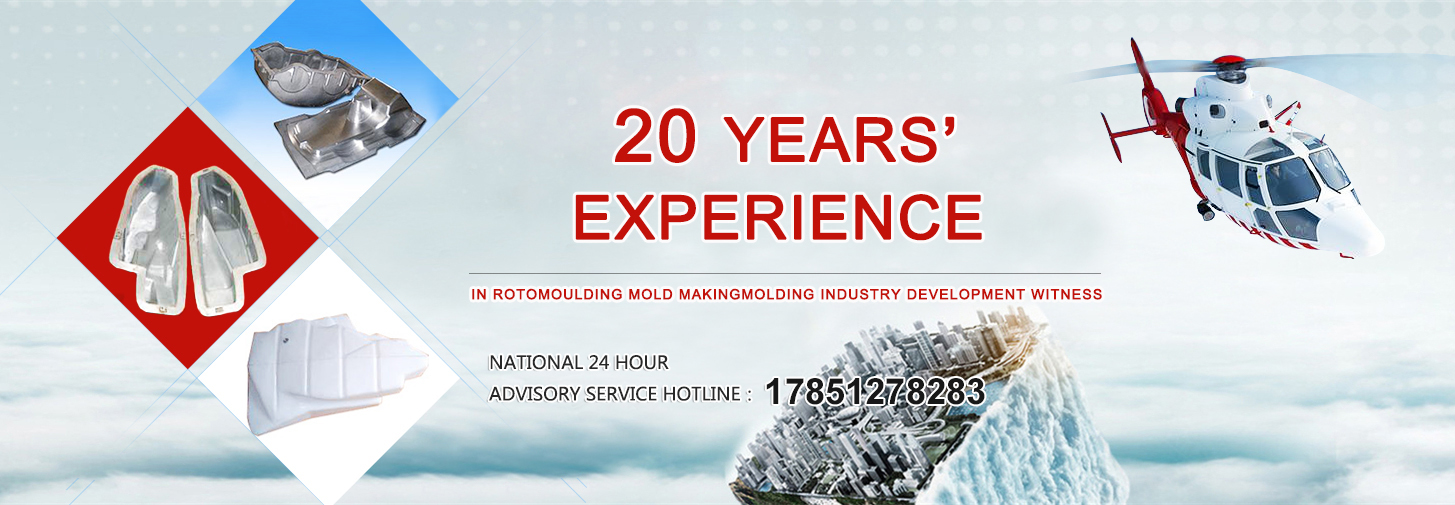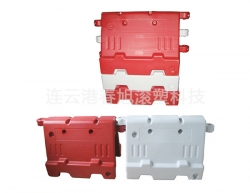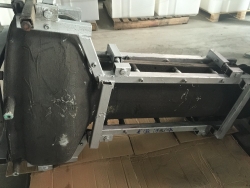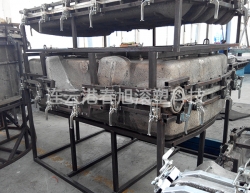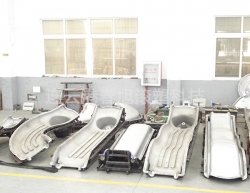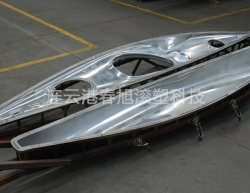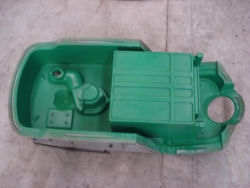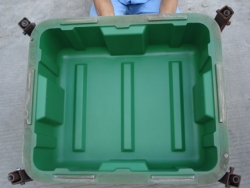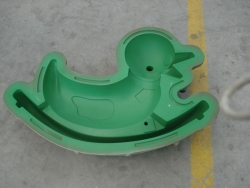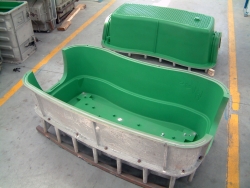Simple introduction of rotomolding
date::2016-07-27 author: click:
Rotomolding a thermoplastic hollow molding method. Including rotomolding of dry powder molding such as PE, molding of PVC paste resin and rotomolding of liquid monomer polymerization. Three types of rotomolding have their own characteristics, but the same principle. That is, the powder or paste or monomer material is injected into the mold first, and the mold is heated and biaxially rotated to make the material evenly fill the cavity of the mold by its own gravity and melt. After cooling, the mold is demolded. Hollow products. The rotation speed of rotomoulding is not high, the product has almost no internal stress, and it is not prone to defects such as deformation and sag. It was mainly used in the production of toys, balls, cans and other small products made of polyvinyl chloride paste. Recently, it has also been used in large-scale products. The resin used has been polyamide, polyethylene, modified polystyrene, and so on.
Rotational Molding Production Design Production Process Prior to the rotomoulding production process, you need to prepare good quality molds and place them on the rotating arm of a rotomoulding machine. This rotomoulding machine generally consists of a heating chamber and a turning arm. Composition, some also with cooling devices such as water spray or cooling fan. After setting up, first place a few molds on the machine. Then, plastic resin powder was placed in each mold and then heated while rotating from both vertical and horizontal angles. The melted resin binds the hot mold and the outer package evenly and tightly together. After heating for a certain period of time, it is necessary to stop the heating but continue to rotate to the mold temperature, in which the mold continues to rotate until the thickness of each part of the mold is uniform. After the mold temperature is reached, the mold is opened, the product is taken out of the mold cavity, and then the new resin is added to the next rotation. Throughout the production process, the speed of the mold rotation, heating and cooling time all go through strict and precise control.
The rotomolding concrete steps can be decomposed:
(a) Feeding: The plastic material is called a good material in the form of liquid or powder into the mold cavity;
(b) Heating: The rotomoulding machine rotates with the mold in both directions and adds the heating furnace to heat the mold. All the plastic adheres and sinters to the inner surface of the mold cavity;
(c) Cooling: With the constant rotation of the mold, the mold is simultaneously turned out of the heating furnace into the cooling chamber, and the rotomolding plastic is cooled and molded in the cooling chamber;
(d) Demoulding: The rotomoulding machine goes to the open position, the mold stops rotating, the mold is opened, and the mold is removed
Design advantages
Compared with other mould processes, rotomoulding provides us with more design space. Under the correct design concept, we can combine several parts into a complete mold, which greatly reduces the high assembly costs.
The rotomoulding program also includes a series of intrinsic design thinking methods, such as how to reconcile the sidewall thickness and how to strengthen the external settings. If you also need to add some ancillary designs, then we can also add ribs to the design.
The rotomolding process injects designers with endless imagination. Designers can choose the best materials for the production process, including materials approved by the General Directorate of Food and Drugs. Additives put into the production process can effectively resist the invasion of the climate, static electricity interference and other external factors. During the design process, inserting the mouth, threading, handles, undercutting devices, and perfect surface design are among the highlights. Designers can also design a multi-wall mold that can be either hollow or filled with foam.
Cost advantage
When cost is also one of the factors we consider, the rotational molding process has a market advantage over other types of processes. When compared with the blow molding process and the injection molding process, the rotational molding process can more easily produce parts of different sizes within an effective cost range. His mold is also relatively inexpensive, because it does not have some internal cores that need to be completed. And in the absence of an internal core, only a little change can be made into another model.
Since the components in the manufacturing process are finally formed under the high-temperature and rotating processes, unlike those formed under the heavy pressure, the rotational molds do not need to be specially processed like the injection molding process. It withstands the test of stress. As for the production costs used to produce the conversion products, the cost has dropped, because light plastics often require more raw materials to be converted into heavy plastics. For the rotomoulding process, the cost-saving single master model will be its future high-yield development trend.
tags:Rotationalmouldmanufacturers
Related Products:
related news:
- What is rotomolding?
- Rotary Molding Industry Development Overview
- Development Overview of Rotational Molding Industry in China
- The future of rotomolding industry
- Rotational process characteristics
- Understanding rotomolding
- Rotational molding and its use in industry
- Rotational molding technology gradually becomes a hot process
- Simple introduction to the process of rotomoulding product processing
- The application of rotomolding process is bound to become the mainstream


